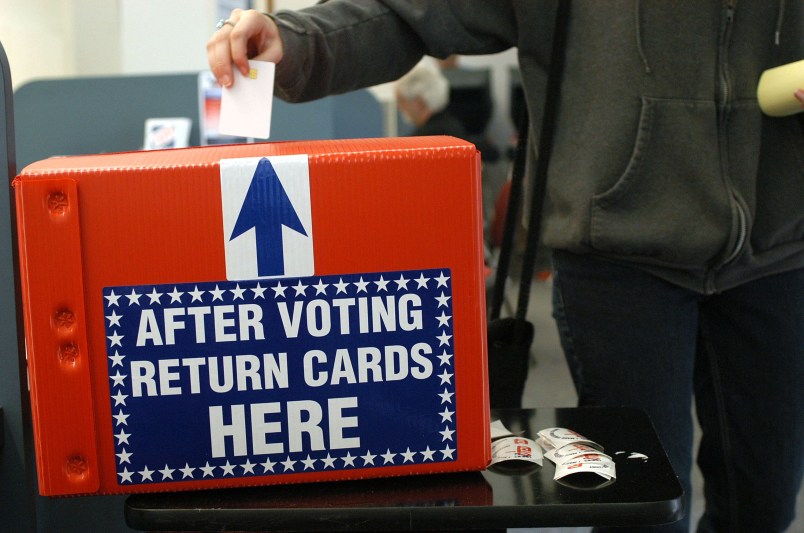Florida counties and state officials are talking past each other, unsure of how to proceed weeks after Sunshine State residents voted to restore voting rights to convicted felons who completed their sentences, the Tampa Bay Times reported Tuesday.
A ballot amendment passed by voters promised to restore the franchise to some 1.4 million Floridians, as long as they were not convicted of murder or felony sex offenses.
At a Tuesday statewide elections conference, Division of Elections director Maria Matthews told the state’s election supervisors that Florida has stopped transmitting documents used to keep convicted felons off the voter rolls, the Times reported. Matthews said that her department fully intended to comply with the will of the voters and promptly enact the policy.
But Republican Secretary of State Ken Detzner told reporters that they needed to consult with state lawmakers before pressing forward.
“We need to get some direction from them as far as implementation and definitions — all the kind of things that the supervisors were asking,” Detzner said, according to the Times. “It would be inappropriate for us to charge off without direction from them.”
County supervisors complained that they were being left in the dark and lacked clear direction from the state, the newspaper reported.
The activists behind Amendment 4 intentionally chose to take this fight to the voters directly, complaining about years of inaction in the state legislature. The measure represented a repudiation of a 2011 policy enacted by Gov. Rick Scott requiring Floridians to wait at least five years after completing all aspects of their sentences before applying to the state clemency board to have their rights restored. The four-person board was controlled by Scott.
Civil liberties groups who backed the policy emphasized the importance of educating former felons about the change in policy and smoothly implementing it. As the Times noted, the current state voter registration form does not ask applicants if they completed all aspects of their sentences. Failure to update the form introduces the possibility that former felons could improperly register without having yet finished their parole or paid off all their fines, leaving them vulnerable to charges of voter fraud.
Scott is stepping down in January to become a U.S. senator. His successor, Republican Ron DeSantis, has expressed opposition to Amendment 4.






